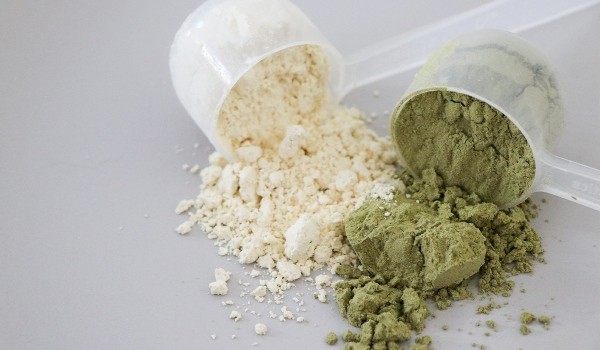
Chromium: Weight Loss & Health Benefits Of Chromium Picolinate
By Neesha Desai, Pharmacist (GPhC 2071387)
Chromium is a powerful mineral that is ‘thought to influence how the hormone insulin behaves in the body’. Although we only need a small amount of this mineral, it cannot be produced in the body so we have to get it from what we consume.
The effects of Chromium and how it fits into the ways in which our bodies work is still being investigated but it has been linked to supporting with conditions like type 2 diabetes, as well as in helping to build muscle and lose weight.
Here, we look at what we know about chromium, what foods you can get it from, chromium supplements and how they can be used to support individuals.
What Is Chromium Used For & Where Is It Found?

The effects of chromium first became apparent in the 1950s when Walter Mertz and his team looked at glucose metabolism in rats. They found that when the subjects were given a chromium deficient diet it seemed to have trouble dealing with increased glucose levels. When they were given chromium rich foods, they were then able to metabolise glucose once more.
Since glucose is one of the most important forms of energy for all kinds of organisms, not just humans and animals, being able to metabolise it effectively is important for a well functioning body. Luckily, chromium is found in lots of foods.
Chromium Rich Foods
Chromium rich foods are relatively easy to come by, and a balanced diet will ensure that you get the right amount of chromium in your diet. Keep an eye out for and include some of the following foods containing chromium in your meals:
- Mussels, Oysters, Brown Shrimp, Herring,
- Brazil nuts, Hazelnuts,
- Dates, Pears, Tomatoes, Grapes,
- Mushrooms, Broccoli, Potatoes, Green Beans
- Wholemeal flour, Wholegrain Barley, Lentils
- Pork chops, Egg yolk, Turkey breast and Beef.

How Much Chromium Per Day?
The NHS recommends 25 micrograms (μg) a day of chromium for a grown adult, which isn’t very much. We only need a very small amount of chromium, at least based on the latest research, which means it is relatively easy to get the amount needed from food.
Taking Too Much Chromium
Taking 10 milligrams (mg) or less of chromium per day is unlikely to cause harm, whether you are getting that from various foods or from supplements. As with all things, too much of a good thing isn’t good, so if you are trying to get more chromium in your diet then be careful not to overdo it. Avoid taking supplements if you are already eating meals with varied ingredients, especially if you are including some of the above chromium rich foods.
Chromium Deficiency
Chromium deficiency is considered very unlikely – it has only been noted in those who have been getting all nutrients intravenously.
In fact the European Union does not consider chromium to be an essential nutrient, perhaps because the research into chromium’s effect on the body is still ongoing. The US more widely recognises the need for chromium in a balanced vitamin and mineral intake, advising amounts in line with the NHS.
Chromium deficiency symptoms can include weight loss and confusion, but is typified by an inability for the body to metabolise glucose – which isn’t something that one can spot. Only a medical professional would be able to assess chromium deficiency. Again though, a deficiency is very rare and the effect is still being debated.
Chromium Picolinate – The Chromium Supplement
Chromium picolinate is a name that you might come across when looking to take chromium supplements. This is simply because it is the name given to the form of chromium that can be turned into supplementary doses. It is also the form that has been used in clinical trials and testing.
Uses of Chromium Supplements

The uses of chromium supplements are not concrete, though the beginnings of assertions are being made. Unlike minerals or vitamins which the body uses a lot of, the small dose needed (or which seems to be needed) means that relatively little research has been done on its effects. Since it affects glucose metabolism, there are two ways in which chromium supplements have been used:
1. Chromium For Weight Loss/Muscle Building
Chromium is ‘required for the normal metabolism of carbohydrate, protein and fat’ and so has been linked to two of the most popular areas of physical health and wellbeing: building muscle and weight loss. The benefits of chromium have been studied but overall are not considered conclusive, in part due to the shortness of trials and the mixed results (some saw no effect of changes in doses and others did).
Theoretically, being able to metabolise glucose and effectively get energy from sustenance is the key job of chromium, so utilising it within the body should allow for an increased breakdown of fat in the body leading to weight loss. It could also suppress hunger, increasing energy expenditure, so that, with a nutritionally balanced diet, a person could more easily increase their muscle mass. However, this is all theoretical and yet to be proven.
2. Chromium For Type 2 Diabetes
Blood sugar levels can affect energy, weight gain, aging and diabetes. Specifically, Type 2 Diabetes is a condition that ‘causes the level of sugar (glucose) in the blood to become too high’. It is quite a common condition and so interest in ways of supporting those who have the condition are significant. The hope is that chromium, in supplementary form as chromium picolinate, can enable the breakdown of more glucose. Some clinical trials have shown that blood sugar control is improved with chromium supplements but it is considered to be only an indication of a benefit rather than proof at this stage.
Find Out More About Vital Vitamins & Minerals

A nutritionally balanced diet that enables a healthy body is important, so important that we feel you need to be able to understand what each vitamin and mineral can do for you. By getting to know what foods these nutrients are found in and how they work in your body, as well as in coordination with one another, we hope it will allow you to live your best, happiest and healthiest life.
Use our Landys Glossaries to find out more:
Disclaimer
The products offered are not intended to diagnose, treat, cure, or prevent any illness or disease, or replace the advice of a medical professional. Results are not guaranteed and may vary from individual to individual.




